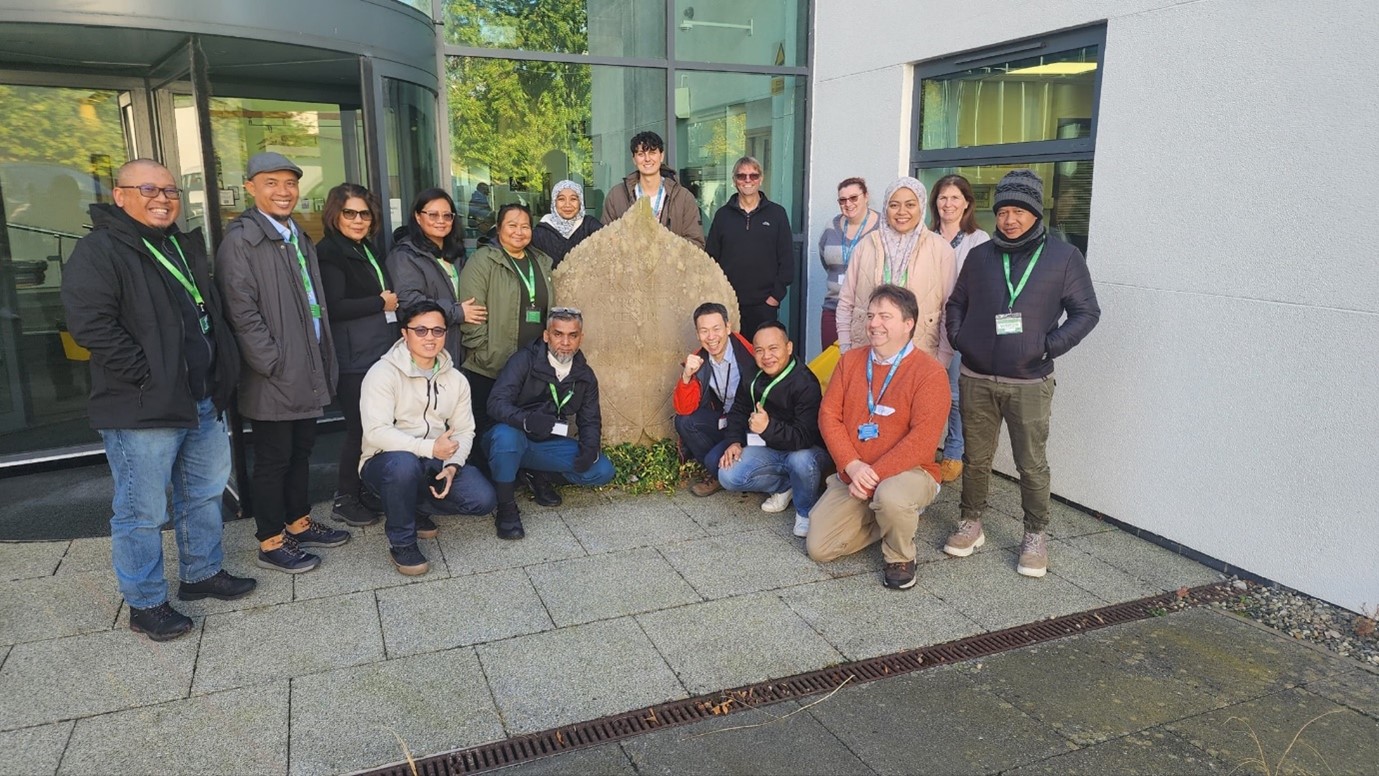Members of the Predatory Bird Monitoring Scheme (PBMS) and UKCEH colleagues welcomed a delegation from Malaysia to UKCEH Lancaster on the 9th and 10th of October to discuss a recent increase in elephant mortalities in Bornean Malaysia.
Concerns have been raised about whether chemical exposure resulting from oil palm production may be contributing to these elephant deaths. To start to address these concerns, the workshop brought together experts from UKCEH (ecotoxicology and wildlife monitoring), Sabah Wildlife Department, conservation organisation Seratu Aatai, University of Malaysia, Malaysian Palm Oil Green Conservation Foundation (MPOGCF), Malaysian Palm Oil Board (MPOB) and oil palm producers Ikhasas Group of Companies.
Lee Walker, the PI of the PBMS, explains: “The workshop discussed the currently available information and data to assess the chemical risk to Elephants but most importantly identified where data gaps are and how they might be addressed”.
“It was a pleasure working with our Malaysian friends over the two days of the workshop. Hopefully, this is the start of a collaboration that will help identify why these Elephants are dying while also improving our understanding of how and what chemical contaminants are released from oil palm production and their environmental fate.”

